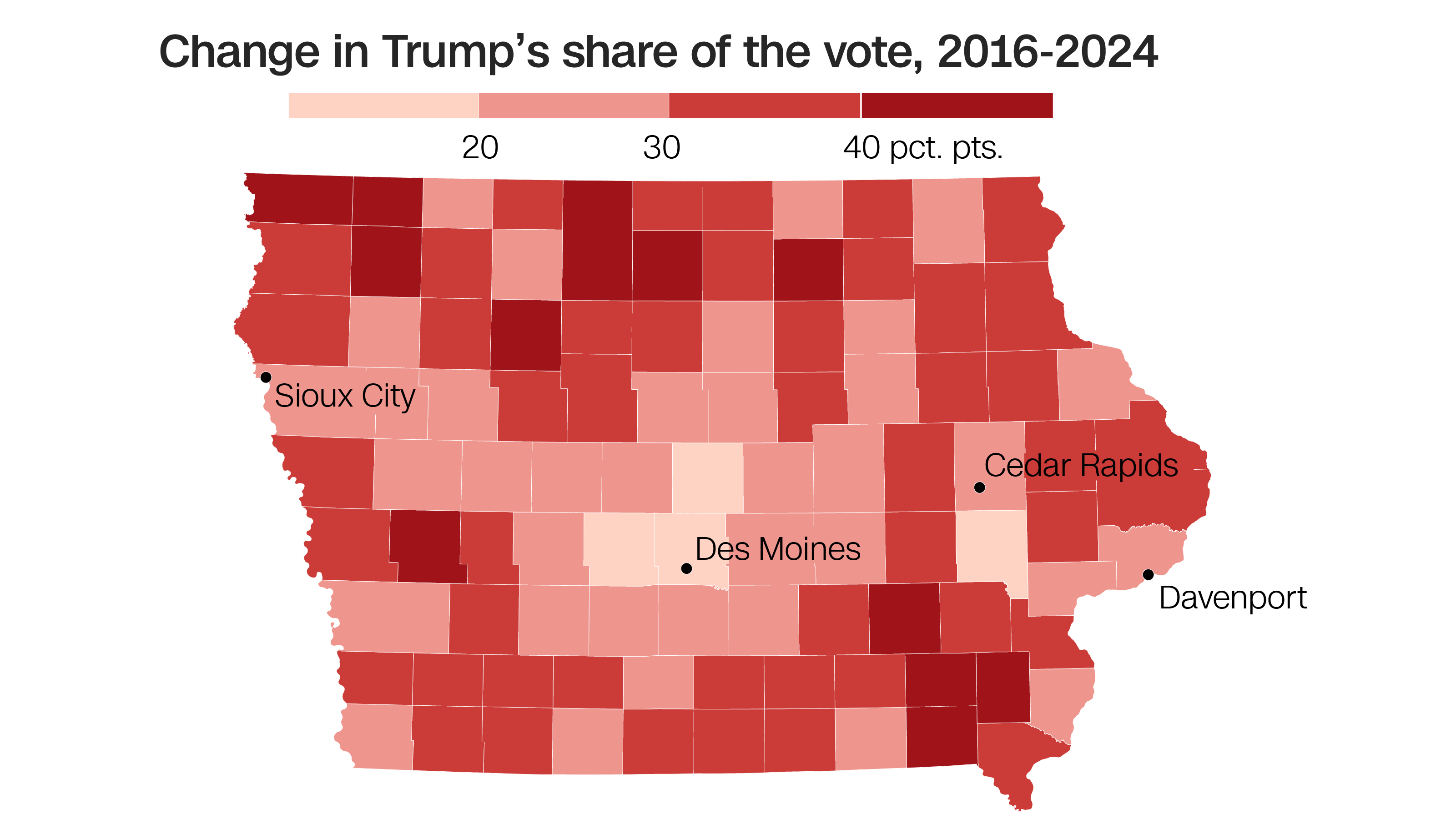Former President Donald Trump’s resounding victory in the Iowa Republican caucuses has reaffirmed his enduring influence within the party. The GOP’s allegiance to Trump was evident in CNN’s entrance polls, with nearly half of the Republican voters identifying themselves as part of the “Make America Great Again” movement, a slogan that Trump made famous in 2016.
Despite all evidence to the contrary, two-thirds of Republican voters question the legitimacy of President Joe Biden’s 2020 victory. Furthermore, nearly two-thirds of caucus-goers do not view a criminal conviction as a disqualifying factor for Trump’s potential return to office. It seems as though Trump’s 2020 defeat has been forgotten by many Republicans, who still perceive him as their president.
Turnout Dips Amid Arctic Temperatures
One notable aspect of this caucus night, marked by freezing temperatures, was the significant drop in voter turnout compared to 2016, the last time Trump faced a multitude of rivals. Approximately 110,000 Iowans participated in the caucuses this year, a stark contrast to the nearly 187,000 in 2016, representing a substantial decrease of around 41% across all 99 counties in the state.
Trump’s Strategy Pays Off
Trump adopted an incumbent’s strategy, staying above the campaign fray in Iowa. Despite skipping debates and appearances with other candidates, his decision proved fruitful. He garnered more support among most demographic groups of Iowa caucus-goers than he did in 2016, including men, women, college graduates, non-college graduates, White evangelicals, and conservatives.
Shifting Demographics
The composition of caucus-goers also underwent significant changes. In 2016, less than half, 40%, identified themselves as “very conservative” in entrance polls. This year, that figure rose to more than half, 52%. The proportion of caucus-goers identifying as “moderate” decreased from 14% in 2016 to 9% this year.
Education Divide in the GOP
CNN’s polling and analytics editor Ariel Edwards-Levy noted that Trump’s strength continues to be built on voters with the least formal education. While Trump held a commanding lead among Iowa caucus-goers without college degrees, college graduates were more evenly split among Trump, former South Carolina Gov. Nikki Haley, and Florida Gov. Ron DeSantis.
Implications of a Criminal Conviction
Trump’s decisive win in Iowa marks a remarkable political comeback since the January 6, 2021, insurrection. However, the question of Trump’s fitness for office if convicted could give some Republicans pause. If nearly a third of this committed group of Republican caucus-goers see a conviction as potentially making him unfit for the White House, it could spell trouble for Trump in a general election.
Republican Support Despite Opposition
Even some Republicans who have consistently opposed Trump have indicated they could ultimately support him. Iowa Gov. Kim Reynolds, who endorsed second-place Iowa caucuses finisher DeSantis and has been a frequent target of Trump’s verbal jabs, made clear she would ultimately support Trump if he’s the nominee. New Hampshire Gov. Chris Sununu, who has been vocally opposed to Trump and has endorsed Haley, also stated he would support Trump even if he’s a convicted felon.

